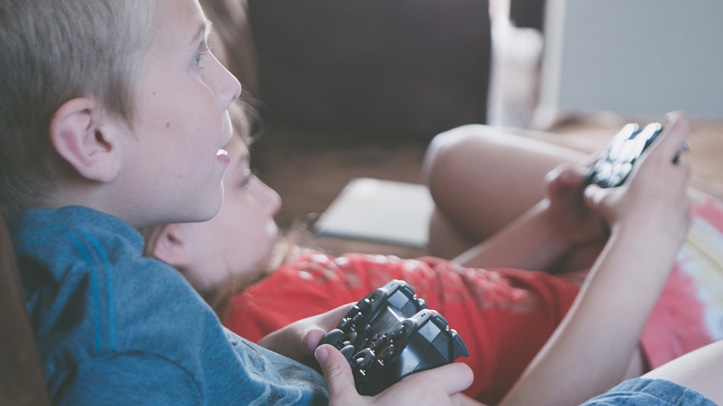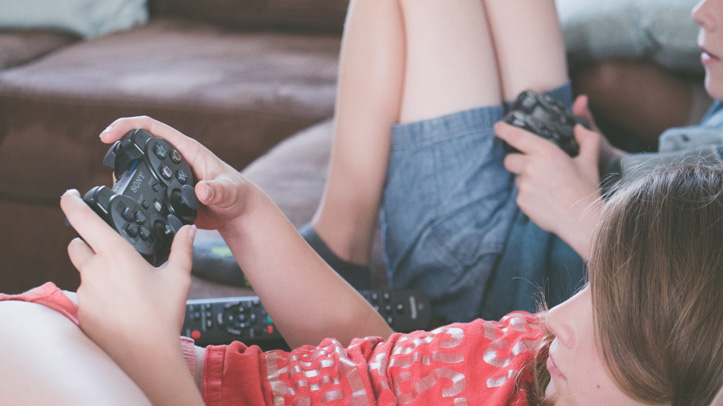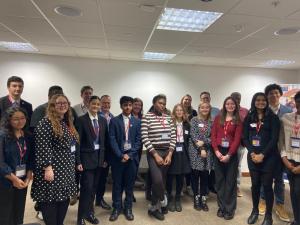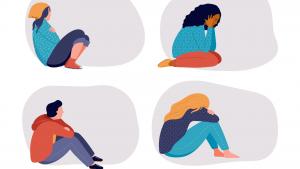In April this year the Government set out their plans for a world-first: a system of regulations that they argue will make the UK ‘the safest place in the world to be online’. The Online Harms White Paper, produced in collaboration between the Home Office and Department for Culture, Media and Sport (DCMS), maps out the UK’s plan to hold web giants to account for a broad range of online harms. The ‘harms’ targeted by the white paper are vast in scope, numbering 23 in total and covering topics as serious and diverse as modern slavery, terrorism, child sexting and abuse. The aim of these measures is to create a safe online space for all users, including children and young people, where they can feel free to communicate, research and play.
The Children’s Commissioner’s challenge to the Government was to ensure these measures are truly informed by voices and opinions of children. Today’s kids were born into an online world that they did not create; an inescapable reality of 24-hour connection, entertainment and social pressure. It is the responsibility of adults to ensure that children have the greatest possible power to shape this first iteration of digital regulation.
In January, Jeremy Wright (then Secretary of State for Digital, Culture, Media and Sport) asked the Children’s Commissioner’s Office to join forces with the Department to help them consult with children themselves. We worked with DCMS to set up and facilitate two workshops with groups from primary and secondary schools. We devised the workshops to find out how these children and young people feel about the current state of affairs online, and the Government’s proposals to change the rulebook.

We asked the children who participated whether they had, themselves, been exposed to disturbing, abusive or potentially illegal content while online. The reaction in both groups was an overwhelming ‘yes’ – particularly on social media and while gaming with anonymous, often older players.
It makes you feel like they don’t care if they don’t respond
Many of the children had reported instances of harmful content, whether to social media or gaming platforms. However, many told us that the system was confusing, impersonal and rarely had any effect:
“Any reports I have made are generally not responded to…I may have been responded to once, but I can’t really remember a clear time I was answered” – Secondary school child
“It makes you feel like they don’t care if they don’t respond” – Primary school child
“Every person’s report should be taken seriously and once something has been done about it, the user should be informed” – Secondary school child
The younger students told us that the reporting process could be difficult for them to navigate:
“I think they should make it more simple so that you can call up for reports instead of having to type” – Primary school child
“You don’t know if they are robots when you contact them” – Primary school child
Reporting makes things worse
The children were particularly keen to discuss the often violent nature of many online gaming platforms, and the potential repercussions of reporting abusive behaviour:
“Once someone kept on swearing because I died” – Primary school child
“Reporting makes things worse in the gaming area” – Secondary school child
Several children told us that, due to a lack of anonymity on several mainstream games, reporting bad behaviour only multiplied abuse from other players. They told us that reporting during a game was seen as being ‘weak’ or a ‘sore loser’, allowing aggressive and abusive environments to thrive.
Take a look at our ‘Digital 5 a day’
Easy to follow, practical steps for children and parents to achieve a healthy and balanced digital diet
How do young people respond to a lack of a safe, effective, anonymous reporting system on social media and within their games? The children we asked told us that they resorted to blocking or confronting users themselves or sought help from trusted adults. In the most extreme cases they deleted the game or app.
“I would stop playing and play a less mainstream game” – Senior school child
“I would delete the game but not download it again. I would tell my parents and look for a different game” – Primary school child
Companies that breach their duty of care
We presented the children with a selection of four proposals, set out in the White Paper, for how to deal with companies that breach their duty of care to users of their platforms. The groups split into pairs and ranked the following policies, from one (favourite) to four (least favourite):
- Pay a fine
- Have to say what they are doing to fix the problem
- The site should be blocked so that no one can use it anymore
- The senior managers of the company should be held responsible
Most senior school children wanted sites to say what they were doing to fix the problem, revealing their desire for more transparency from companies and a greater sense of influence over their decisions.
The Primary school children, on the whole, favoured the most extreme option: blocking the site altogether. This demonstrated to us the strength of feeling among the youngest users of the internet, and their desire for something to be done to change the status quo.
Notably the children generally liked all four policies, and felt that all options should be open to the regulator and be used in conjunction with one another.
[School] just keep telling us the same thing
When asked how they learn to stay safe online, both groups were relatively critical of their safety lessons, feeling disengaged by lengthy and repetitive talks:
“I don’t think that e-safety day tells us anything at school because they just keep telling us the same thing” – Primary school child
“They don’t show us how to where to block. We always do a poster but it doesn’t really help us!” – Primary school child
They want creative and engaging online safety sessions, as well as teaching from individuals with relevant personal experience:
“The government should fund smaller projects and cleverer ways to show the information” – Secondary school child
“Workshops! Class-size workshops or larger – asking questions and discussing responses to different scenarios. Good atmosphere, not too serious but informative.” – Secondary school child

The young people also wanted more education around technical and legal issues, such as reporting, data collection, privacy and how to interpret T&Cs:
“I click everything and don’t read terms and conditions as they are too long, they should make simple rules for children not so long” – Primary school child
“Knowing how to respond to toxic comments when reporting doesn’t work or isn’t responded to (which is often)” – Secondary school child
“Learning about how companies collect data for customised advertising; privacy and what companies use your info for” – Secondary school child)
The most interesting and crucial findings from these focus groups were around gaming. It seems that gaming is just as, if not more important to children than social media – and that seemed true for the older kids as well as the younger ones. Furthermore, children’s experiences of gaming sometimes differ from social media. For example, children seemed a lot more reluctant to report on the former compared to the latter.
It’s clear from the children we spoke with that online harms legislation works across different types of platform – especially gaming sites – and we will continue to talk to DCMS and the Home Office as legislation evolves.
The Children’s Commissioner’s Office is also working on a new project looking at the benefits and drawbacks of online gaming, to better understand children’s experiences in this rapidly developing field, to be published later this year.
Who knows what about me?
Data can deliver an incredible range of benefits to individuals and society, but do you know everything about how children’s data might be used – not just now, but also in the future, as children become adults.






